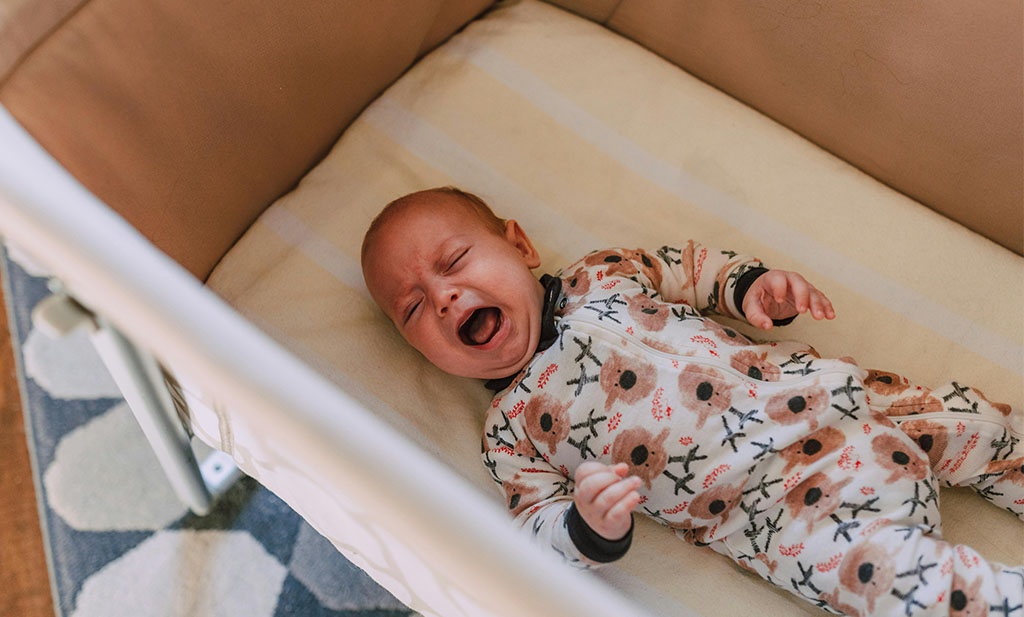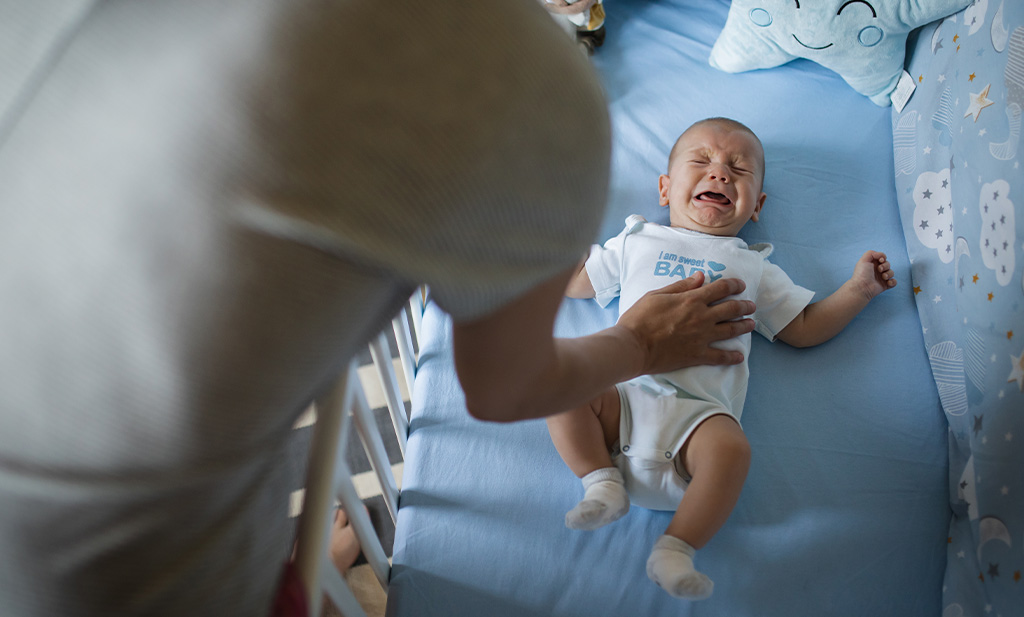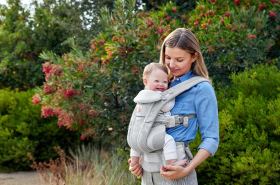
Crying is one of the few ways babies communicate their needs to the world. Whether they are hungry, uncomfortable, or in need of comfort, a baby crying in sleep is a natural signal to let us know something is wrong. “Hey Mama/Papa! Come help me!”
During the day, it’s relatively easy to distinguish the cause of their crying, but at night, when we can also be tired and confused, it can often be more challenging. Babies wake frequently at night, especially in the early months, because they require a feed, a nappy change, or simply want reassurance and comfort. However, some babies also cry during sleep itself, which can be confusing and concerning for parents.
It’s important to understand that in the early months, waking and crying at night is perfectly normal. Babies have many needs during the night, and waking up to meet those needs is a healthy, normal part of their development. If your baby wakes up crying, it could be that they’re hungry or uncomfortable, and responding to those basic needs is essential.
But what about when babies cry or call out without waking up?
Why do newborns cry in their sleep?
It can be quite alarming when your baby cries in their sleep, especially if they seemed to be sleeping peacefully just moments before. Don’t panic, this is often a normal part of a baby’s sleep cycle. Babies, especially newborns, are still learning how to sleep, and their sleep stages are more fragmented than ours. Unlike adults who transition smoothly between different sleep stages with just a partial waking (that we’re unlikely to remember), babies are prone to periods of light sleep during which they might stir, make noises, random movements, or even cry out.
What does it mean when babies cry in their sleep?
One of the main reasons for a baby crying in their sleep often comes down to a period called “active sleep.” During active sleep, you may notice your baby twitching, their face grimacing, and even making vocalisations like crying or whimpering. This is similar to what we adults might experience during a dream, and is a completely normal part of their development. They are still adjusting to the world outside the womb, processing new experiences and feelings.
Some babies also cry in their sleep due to hunger or discomfort, even if they do not fully wake up. If your baby continues to cry after a brief period of you watching and waiting or seems distressed, then checking their basic needs—such as thinking about the last time they were fed, if they have a dirty or very wet nappy, or checking the room temperature—could help ease their discomfort.
Why do babies cry at night suddenly?
One of the more perplexing behaviours parents encounter is when their baby cries in their sleep, only to stop just as suddenly. This is usually tied to the natural transition between sleep cycles. Babies’ sleep is very different from that of older children and adults. They spend a big portion of their sleep in what’s called REM (rapid eye movement) sleep—a lighter stage of sleep where dreaming occurs, and their brains are processing a lot of new information making all those important connections. During these transitions between REM and non-REM sleep, babies might make noises or cry out momentarily. However, they often settle back down into deeper sleep without needing to be soothed.
Baby crying in sleep but not awake?
This crying without fully waking up is particularly common during the first few months. It can also happen when babies are developing new skills, such as rolling over, sitting up or crawling, which often results in some sleep disturbances.
In these instances, it’s often best to take a moment before rushing in to soothe them. Giving your baby just a little time to see if they will calm themselves (before you offer help) can help them learn how to transition between sleep cycles on their own—a key component in helping them develop healthy sleep habits. You’ll also avoid waking them by accident if they’re actually still asleep!

How You Can Help a Baby Crying in Sleep (And Yourself!)
Helping your baby through periods of crying during sleep is part of the bigger picture of establishing a strong sleep foundation. Strict sleep training methods aren’t suitable for newborns but for those wanting to set good sleep foundations, even small tweaks, like establishing a calming pre-sleep routine, making sure your baby has a conducive sleep environment, and responding appropriately to their cries during light sleep stages, can make a big difference over time.
As your baby develops, their sleep patterns will continue to change, often with temporary ‘regressions’ that can result in more crying at bedtime or waking during the night. It’s important to note they’re often temporary. Keeping a close eye on your baby’s sleep environment—ensuring it’s dark, quiet, and at a comfortable temperature—can help minimise disruptions. At the same time, using soothing methods like a gentle hand on their chest or soft shushing sounds can help ease a baby crying in sleep through these challenging sleep transitions.
About Gemma
I’m Gemma Coe, an award-winning, certified baby and child sleep specialist with years of experience helping families across the world with their children’s sleep challenges. I use a holistic, evidence-based approach to support families in building healthy sleep foundations.
My book, Newborn Sleep Foundations: A handy guide for the first 16 weeks, is an essential guide for new parents, offering practical advice for the first 16 weeks of your baby’s life, and is designed to help you confidently navigate these early stages.
@childsleepspecialist www.childsleepspecialist.co.uk
————————————–
Featured Photo by RDNE Stock project from Pexels:



